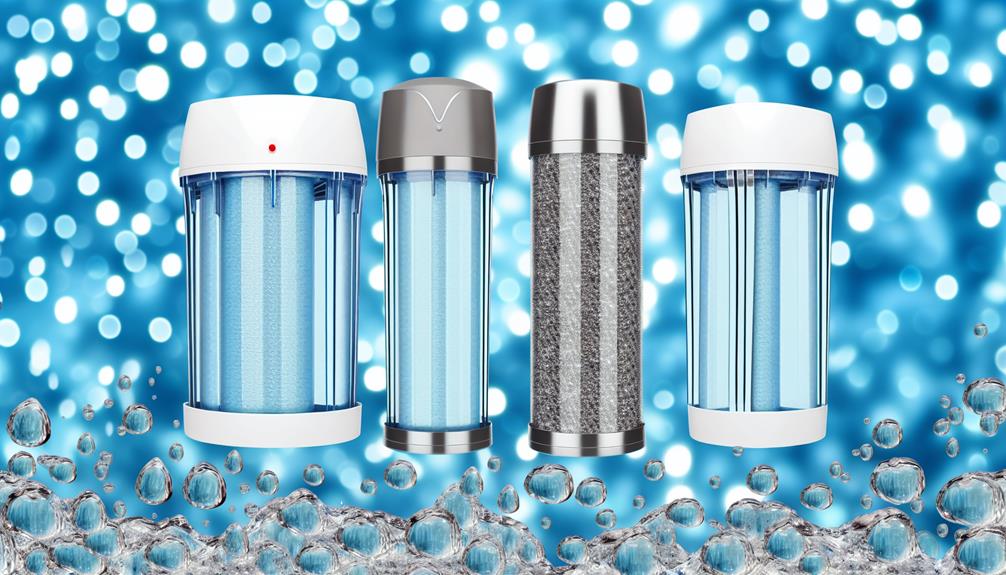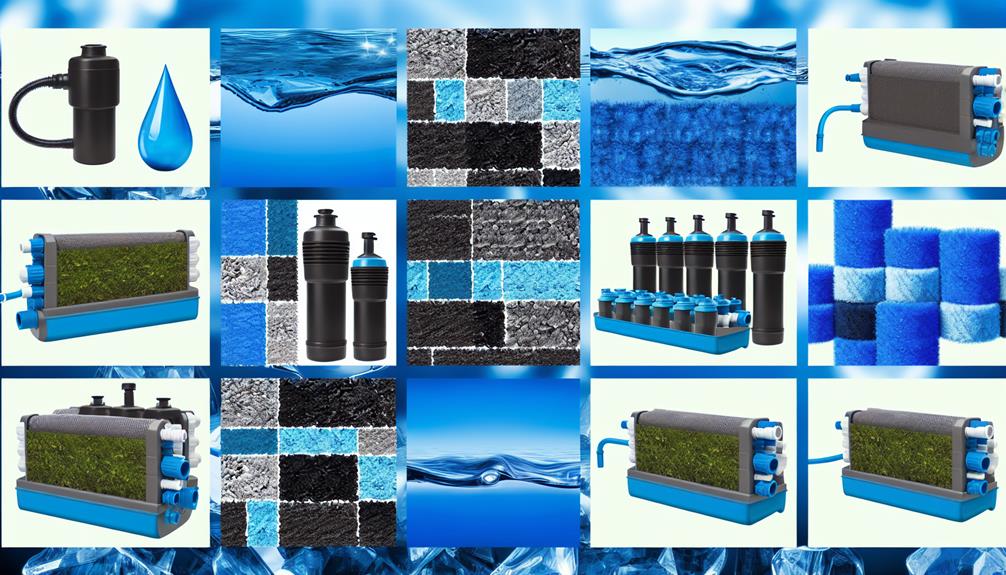Imagine your home as a fortress, designed to protect you and your loved ones from external threats. Now consider lead-contaminated water as a stealthy invader, one that can breach your defenses without a sound, posing serious health risks over time.
You've likely heard that certain water filters can serve as your castle's elite guards, but you're not sure which ones are truly up to the task. As you seek the best protection, you'll find the market flooded with options, each claiming to be the most effective shield against this silent foe.
To make an informed decision, you'll need to sift through a plethora of information on filtration technologies that promise to keep your water lead-free. So, what should you look for in a water filter to ensure your home remains a safe haven?
Stay tuned to uncover the key features that distinguish the most reliable sentinels in the battle for pure, lead-free water.
Understanding Lead Contamination
To effectively combat lead's toxic effects on human health, it's essential to grasp both its origins and the severity of its presence in your water supply. Exposure to lead, a potent neurotoxin, can result in brain disorders, kidney damage, and a host of other health complications. The Environmental Protection Agency (EPA) has identified lead pipes as a primary contributor to lead in water, particularly in older infrastructures where they were once widely used.
Understanding the levels of lead contamination in your water is pivotal for implementing appropriate Lead Removal strategies. Pregnant women, unborn babies, and young children are at heightened risk, underscoring the importance of removing lead from water supplies. Lead removal isn't just a matter of preference but of public health necessity.
To remove lead from water effectively, you must select filtration systems that meet the rigorous NSF Standard 53 for lead reduction. These systems employ methods like reverse osmosis, activated carbon, and distillation, each with different capabilities in the removal of lead. It's vital to verify that your chosen solution can attenuate the specific concentration level of lead contamination you're facing. Remember, the end goal is to safeguard health by ensuring that your water is free from this insidious contaminant.
Lead Filtration Techniques
When considering how to reduce lead in your water, it's crucial to understand the different filtration techniques available, each with its specific strengths and limitations.
Reverse osmosis systems are highly regarded for their ability to remove a wide variety of contaminants, including lead. This process forces water through a semi-permeable membrane, filtering out impurities. While it's an affordable option, it's vital to note that reverse osmosis can also strip away beneficial minerals.
Activated Carbon filters are adept at absorbing heavy metals like lead, making them a popular choice for water filtration. These filters operate by trapping lead ions within the porous structure of carbon granules. Although effective, the capacity of Activated Carbon to remove contaminants can diminish over time, necessitating regular filter replacements.
If you're seeking the best water filter certified to remove lead, ensure it meets NSF Standard 53. This certification indicates that a filter has been rigorously tested to reduce lead levels.
Distillation units, while offering high purity levels, are less common due to their substantial energy requirements and the slow process involved.
In your pursuit of removing lead from your drinking water, weigh each filtration method's pros and cons against your specific needs to make an informed decision.
Top Pitcher Filters for Lead
Selecting a top-tier pitcher filter for lead removal requires careful consideration of performance, design, and filter longevity to ensure your drinking water is safe and clean. When you're evaluating pitcher filters, it's crucial to verify that the product not only removes lead but also adheres to the rigorous NSF Standard for water supply safety.
Here are four pitcher filters that stand out:
- Brita Standard Everyday Pitcher: This pitcher features a straightforward design for ease of cleaning and usage. It's certified for lead reduction and can be found on Amazon and Target.
- Brita Ultramax Dispenser: Suitable for larger households, it comes with a user-friendly spill-resistant spigot, ensuring that your water filter system remains hygienic and convenient. Available on Amazon.
- LifeStraw Home Dispenser: This system passes strict testing to remove numerous contaminants, including lead. It utilizes a complex carbon filter process, guaranteeing cleaner water with every pour. Secure yours on Amazon.
- PUR PLUS Pitcher with Lead Reduction Filter: While not directly mentioned, it's notable for its certification in lead reduction, blending efficient design with high-quality filtration, available at various retailers.
Each option offers a unique set of features, but all prioritize the removal of lead from your water, providing peace of mind with every sip.
Best Faucet-Mounted Units
For those seeking quick and convenient access to cleaner water, faucet-mounted units stand out as an effective solution for eliminating lead and other contaminants directly from your tap. These types of water filters are engineered for ease of installation and use, fitting neatly onto your existing faucet, thereby transforming it into a barrier against harmful substances without requiring electricity.
Faucet-mounted units, also known as faucet-mount filters, are designed to reduce lead and improve water taste by filtering out chlorine and a spectrum of other impurities. The filter cartridge, a critical component, is responsible for trapping contaminants as water flows through. To maintain optimal performance and ensure sustained lead elimination, it's essential to replace the cartridge as recommended by the manufacturer.
When assessing faucet-mounted water filters, prioritize products certified by the Water Quality Association and those meeting American National Standards Institute (ANSI) standards, which guarantee a filter's ability to reduce lead levels effectively. NSF certification is a hallmark of quality, indicating that a filter has undergone rigorous testing to meet strict health and safety criteria.
A feature-laden faucet-mounted unit might offer a filter life indicator and multiple flow rate options, enhancing user experience. However, the fundamental metric remains the unit's capacity to ensure lead elimination, securing your household's access to clean, potable water.
Advanced Reverse Osmosis Solutions
While faucet-mounted units are a convenient choice for reducing lead, advanced reverse osmosis solutions offer a more robust filtration system, capable of removing up to 95% of lead from your water. These water treatment systems are in line with the guidelines set by the Safe Drinking Water Act, ensuring that the level of lead in your drinking water stays well below the maximum contaminant level allowed.
Here are key benefits of advanced reverse osmosis water filters:
- High Efficiency: Removes a significant percentage of lead, along with a variety of other harmful chemicals.
- Cost-effective Maintenance: Requires fewer cartridge replacements compared to other filtration methods.
- Compliance with Standards: Certified by authoritative bodies like the American National Standards Institute and the National Sanitation Foundation.
- Ideal for Older Homes: Especially beneficial for houses with pre-1986 lead pipes and fixtures.

